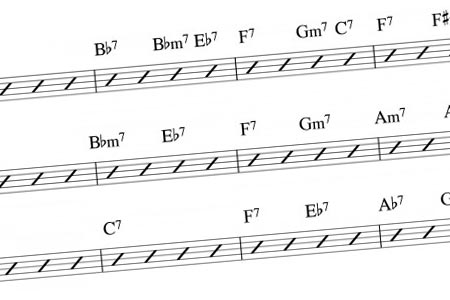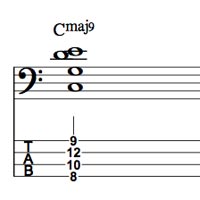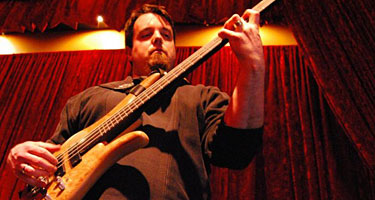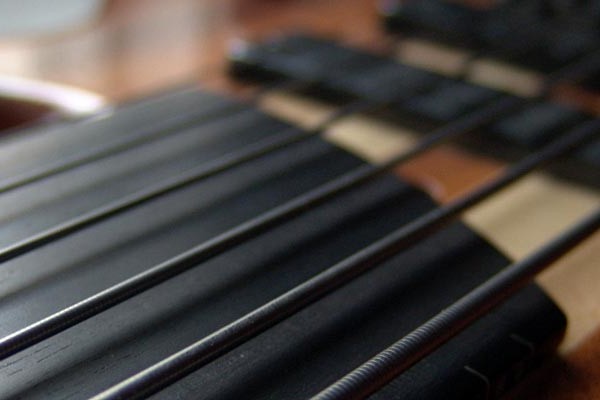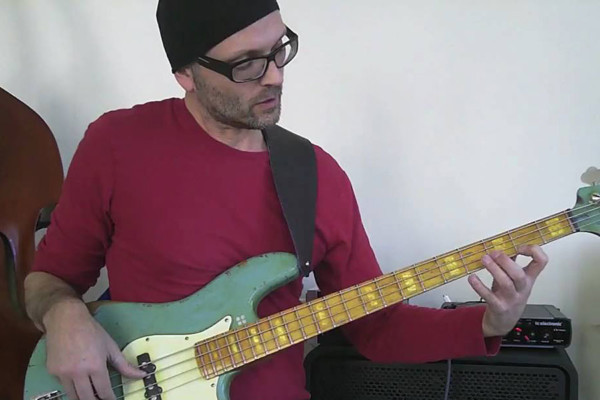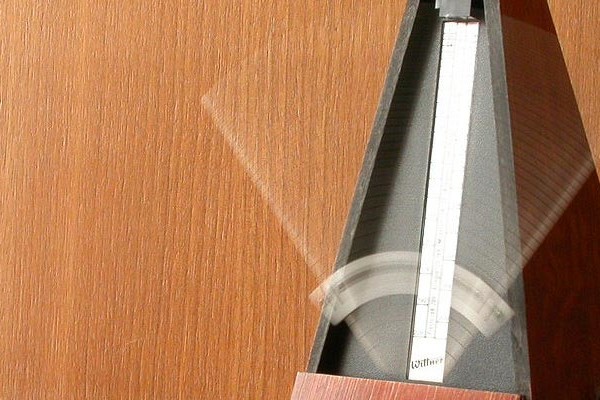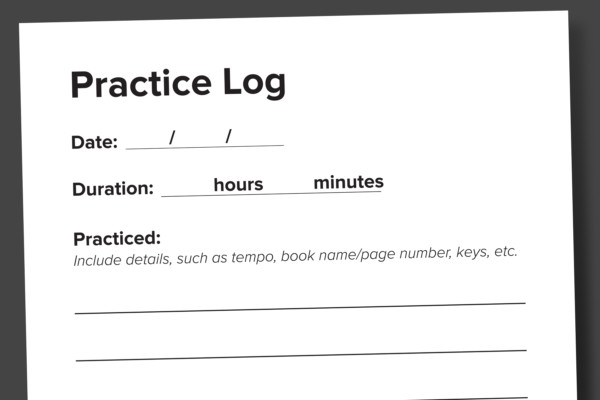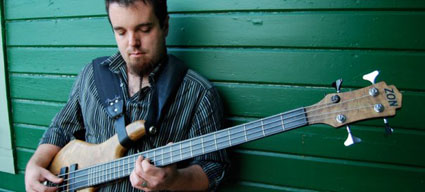Practicing Archives - Page 11
Exploring Turnarounds
Q: I really enjoy and find great value in your columns on No Treble. In your last column, you discussed the modal and chordal approaches and mentioned this: “Don’t forget to also practice and transcribe things, which will make you a stronger bassist (walking, common endings and turnarounds, time, various time-feels, and so on.)” Could you expound further on what...
Learning the Song – Part 1: Breaking It Down for Performance
It’s time for a real life gig story. I was recently given a set list for an upcoming gig… two sets, roughly 25 tunes, mostly classic rock and soul. Glancing over the set list, I saw many tunes that I already knew, so I figured I’d be fine, right? Guess again. As it turns out, a couple of the tunes...
Playing Chords: A Guide for Bassists
Q: I recently bought a 6-string bass and started working on playing chords. How should I voice more complex chords (e.g. Gm13) using few (3 to 4) notes, while maintaining the quality of the chord? A: It is important to note a few things when doing this. Much of this is learned by doing it wrong and having someone correct...
Audition and Performance Preparation: Recording Yourself
One very enlightening way to prepare for an audition or performance is to record yourself prior stepping on the stage, or into the audition room. Expensive equipment is not required to gain benefit from recording yourself. Although better recording equipment means you can listen back in greater detail, the fact is that free recording software and the microphones on most...
Ear Training and the iTunes Game
As a musician, our greatest tool is our ears. Our job within a musical context is to listen, and quite frankly, to play notes that sound good. As a bass player, we need to be on our toes and quickly decipher the bass line and at the very least, the root notes of the chords that are being played. There...
From Groove to Changes to Soloing: Damian Erskine’s Practice Routine
Q: You answer a lot of questions to help bassists out. But I’d like to know, what are you personally working on to improve your playing? A: I am in a constant state of flux with my practice habits. Different things bug me about my playing depending on the gigs I have one week versus the next. Lately, it has...
A Guide to Making the Switch Fretless Bass
Q: I’ve just removed the frets from my first bass, and this is my first experience with a fretless bass. What advice do you have to start out? A: There are two areas of focus for making the switch. At a glance, these might seem to contradict each other, but one applies to practicing and one applies to performance. Fretless...
Improving Your Playing: What’s Your Story?
Q: What are you personally working on to improve your playing? A: Okay, getting more personal than usual here <grin>… I am in a constant state of flux with my practice habits. Different things bug me about my playing depending on the gigs I have one week versus the next, causing me to switch gears and focus. Lately, I’ve been...
Harmonizing the Major Scale: Using a Number System on Bass
This week, I’m kicking off a new lesson focusing on the foundation of music – the major scale. Read over this lesson and then be sure to check out the video for a demonstration. Western music harmony is mostly based on the 7 steps of the major scale, and the chords built on the major scale are very common to...
Repeat After Me: Metronomes (and Drum Machines) Are Fun
First things first, I’m not trying to open a “metronome debate.” I’m also not trying to lecture people about using (or not using) a metronome during their practice sessions. Instead, I’m going to shed some light on why and how metronomes can be useful tools when it comes to practicing and experimenting with your instrument. We’ll examine the differences between...
Guiding Your Own Practice: A Checklist for Improving Your Practice Routine
Confession: I played bass for years without ever practicing. I didn’t know what to focus on and certainly didn’t have enough discipline for it… I just wanted to play. I played along with records, I fooled around and discovered certain licks, and I hung out with musical buddies who would give me tips now and then; but I never actually...
Playing Through Chords – Continued
Q: I’ve spent a lot of time developing exercises for myself to practice connecting chords so that I’m not treating each chord as a separate entity. My goal is to voice-lead my way through the chords as if each is a slight variation on the last. I’ve been trying to solo during chord progressions, but I find myself stuck on...
